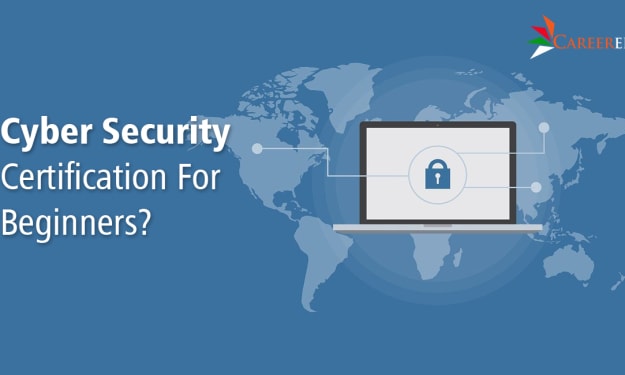Vital Tips for Remote Workers on Cybersecurity
Important Tips for Remote Workers

As the world continues to recover from the post-pandemic age, remote working has evolved into a semi-permanent strategy. Since the onslaught of the COVID pandemic, organizations and companies across the globe quickly transitioned to a remote workforce. A greater emphasis has been laid on providing services to customers through digital means. Consequently, the demand for services and products through the digital medium has skyrocketed.
The new normal of remote working comes with the imperative need to enforce a safe and secure digital work environment. This has further been possible with cybersecurity working at the backdrop in successfully fulfilling a dual purpose of providing business continuity while also protecting the company and its consumers.
Cyber criminals are also evolving and constantly inventing sophisticated ways to access networks and take advantage of unsuspecting targets as a growing percentage of employees work remotely.
Hence, securing a safe work environment for remote workers has become an urgent action required to be implemented for every individual and organization. With this rise in the need for securing remote working with robust cybersecurity comes the value of taking up Cyber Security professional Courses. Professionals and ambitious individuals can use Cyber Security Certification Courses to develop their skills and knowledge and implement sophisticated security measures.
Let us look at the ways and measures in which remote workers can safeguard their online works:
Keep your Work station at home Secured: There is no reason why you shouldn’t be cautious of securing your workstation at home. Physical security should not be compromised. Remote workers should give equal attention just as they do in the office. For instance, locking the door, keeping laptops safe, etc. There are higher chances of your laptops getting stolen from your home than from the office. Hence, maintaining the same level of home offices as regular offices should be a priority.
Ensure Safe Home Router :
Because few people care to change their router passwords, cyber criminals target default passwords, leaving their home network vulnerable. A simple action you can take to secure your home network from bad actors who want access to your devices is to change your router’s password from the default to something unique. You may also apply firmware upgrades as quickly as possible to prevent known vulnerabilities from being exploited.
Encrypt All of Your Electronics: If your company hasn’t already enabled encryption for you, you should do so since it helps to reduce the security risk of lost or stolen devices by preventing strangers from accessing your device’s contents without knowing your password, PIN, or biometrics.
Depending on your device, you can enable encryption in the following ways:
- Turn BitLocker on- on Windows.
- Turn on FileVault on macOS.
- Use dm-crypt or something similar on Linux.
- Android: Since Android 6, this feature has been enabled by default.
- Since iOS 8, this feature has been enabled by default.
Use only supported versions of Operating Systems:
Every day, new vulnerabilities and exploits are added to CVE (Common Vulnerabilities and Exposure) and they frequently affect older versions of operating systems that are no longer maintained by their developers. In general, operating system developers only support the most recent major versions, as supporting all versions is expensive, and the vast majority of users upgrade. You must be aware that unsupported versions of software don’t receive security fixes, thus posing a risk to your device and sensitive data.
Prioritize using Antivirus software
Viruses, spyware, ransomware, rootkits, trojans, and other sorts of malware can all be prevented with antivirus software. Antivirus software is a program that fights viruses. Installing antivirus on your devices entails the program detecting viruses and eliminating them from your system. Antivirus software is a preventative measure, which means it not only removes a virus but also prevents other viruses from infecting your computer in the future.
Make use of a VPN (Virtual Private Network)
A virtual private network (VPN) extends a private network across a public network, allowing you to send and receive data as if you were directly connected to the private network across shared or public networks. They accomplish this by establishing a secure and encrypted internet connection to the network and directing your traffic through it. This keeps you safe while using public Wi-Fi hotspots and allows you to access secure computing assets from afar. Because VPNs make it impossible to snoop on your traffic and intercept what you’re doing, they can lessen the danger of certain cyber assaults, such as MITM attacks. They can also prevent websites from detecting your correct location or your internet service provider from tracking your activities.
Select Secure Passwords
Passwords secure your devices and critical data against unauthorized access. By generating a strong, one-of-a-kind password, you considerably improve security. You make it more difficult for hackers to obtain access to your systems networks and disrupt them. Furthermore, while creating passwords, ensure not to use any information about yourself, such as your date of birth, license plate, or residence. To anyone who isn’t you, a decent pin/password should appear random.
Use an Authenticator App and Enable Two-Factor Authentication:
Even if an attacker obtains your password, they are unable to access it because they lack the second piece of proof. Two-factor authentication can drastically lower the chance of successful phishing emails and malware infestations. They’d need access to whatever is producing your one-time code, which should be an authenticator app or a security key, to log in successfully. A password is the first and most usual piece of proof. The second usually takes the form of a one-time code or a push notification.
Keep your Work and Personal device separate: It may be easier said than done, but it’s critical to draw a line between your job and personal life, especially if you work from home. While switching between devices to pay a bill or shop online may seem inconvenient, try your best to keep your work computer and home computer separate. You never know if you’ve been hacked. If your personal or work device has been compromised, this can assist decrease the quantity of sensitive data revealed.
Make an investment in cyber-awareness training: Unfortunately, cybersecurity is not a subject that can be taught once and then forgotten. Cyber criminals are always seeking new ways to get over security safeguards and psychological barriers in order to obtain access to sensitive data. Hence, updating one’s skills and knowledge through cyber security courses is the key to achieving the ultimate goal.
If you are an employer, encourage your workers to invest in acquiring updated skills and techniques and obtain Cyber Security Professional certification. It is a constant challenge for employers as well as workers to be vigilant of cyber threats as almost all businesses are carried out online. The one sure way to amp up security measures in ensuring your company workers are well-equipped with up-to-date technical skills. Cyber Security Professional Courses does the job of fulfilling the demands of the industry by providing apt training with best practices.
If you are an individual working remotely and are challenged by the mounting pressure of keeping your work protected against the evil eyes of cyberthreats, sign up for Cyber security certification courses and facilitate smooth working for yourself and your team members.
About the Creator
Jazmine Brown
I am Jazmine Brown working as an course advisor at Careerera. Careerera is a well-known company that offers world-class higher education and training courses.Like Data Science course, Cyber Security course etc






Comments
There are no comments for this story
Be the first to respond and start the conversation.